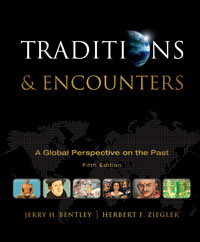1 Iliad and Odyssey , the ancient Greeks were portrayed asA) expert and fearless seafarers. B) professional pirates. C) warriors with human heads and horse bodies. D) rational philosophers. E) drunken homosexuals. 2 A) Both societies used Linear A. B) Both societies built palaces. C) Both societies were established by Indo-European immigrants. D) Both societies fought in the Trojan War. E) Both were centered on Crete. 3 A) oppressive despots with no popular support. B) ambitious politicians who gained power by irregular means. C) extremely popular leaders of poleis . D) democratic rulers of Athens. E) None of these answers is correct. 4 A) Boys were taken away from their mothers for military training. B) Young married women did not live with their husbands. C) The helots were servants of the Spartan state. D) Vigorous physical exercise for girls was encouraged, in hopes that they would bear strong children. E) All these answers are correct. 5 A) Sophocles B) Sappho C) Pericles D) Homer E) Darius 6 A) Citizenship was open to all residents. B) Slavery was abolished through Solon's reform. C) All male citizens were qualified to join the city councils. D) Men and women could hold political office. E) None of these answers is correct. 7 A) population pressure. B) an abundance of agricultural land in Greece. C) earthquakes and volcanic eruptions on the Greek peninsula. D) a sense of pride associated with military conquests of other peoples. E) the need to flee from the Persians. 8 A) It quickened the social development of the peoples living in the western Mediterranean and Black Sea regions. B) It led to direct conflict between the Greeks and the Persians. C) It made Greeks weak and isolated from one another. D) It disrupted trade and commerce. E) It led to a gradual decline in the economy of the Peloponnese. 9 A) conduct democratic reforms in Athens. B) discourage further Persian invasions. C) maintain peace within the Greek world. D) bring greater wealth to Sparta and its allies. E) All these answers are correct. 10 A) two groups of Greek adversaries under the leadership of Athens and Sparta. B) Thebes and Corinth. C) Anatolian Greeks and peninsular Greeks. D) the Persian empire and Athens. E) None of these answers is correct. 11 poleis finally fell underA) Xerxes, by 480 B.C.E. B) Pericles, by 429 B.C.E. C) Philip II, by 338 B.C.E. D) Alexander, by 336 B.C.E. E) Plato, by 400 B.C.E. 12 A) Egypt B) Bactria C) China D) Mesopotamia E) India 13 A) It had one of the largest libraries in the ancient world. B) It was the commercial center of the Mediterranean. C) It was the cultural capital of the Hellenistic world. D) It was originally a colony of Athens. E) It was the administrative center of the Ptolemaic empire. 14 A) known for its fertile valleys and copious rainfall. B) especially good for travel and communication. C) ideal for cultivating olives and grapes. D) the homeland of Alexander. E) All these answers are correct. 15 A) a woman accusing her husband of abandoning her newborn baby, but the court rejecting her petition B) a woman managing the family shop by herself after her husband's death C) even the homosexual men of the community condemning a woman after her homosexuality was exposed D) a Spartan woman taking up arms to defend the polis E) All these answers are correct. 16 A) it was based purely on human reason. B) its reasoning was based purely on experiment. C) it transformed the Greek myths into philosophical speculation. D) it encouraged a personal emotional response to the gods. E) All of the answers are correct. 17 A) the belief that our display of virtue or other qualities in the world was merely an imperfect reflection of the true reality B) the belief that there was another world of ideal qualities called Forms C) the belief that the ideal state was one ruled by a philosophical elite D) the belief that only democracy could make the philosopher-king possible E) the belief that the ideal state would allow people to work at jobs where their talents lie 18 A) the Aristotelians. B) the Epicureans. C) the Stoics. D) the Platonists. E) the Skeptics. 19 A) death is an eternity of nothingness. B) no evil can happen to a good man either in life or after death. C) all men know life is better than death. D) death is a good thing. E) None of these answers is correct. 20 A) They promised the possibility of eternal bliss. B) The cult of Osiris became one of the most popular. C) Many included the belief in a savior who dies and is resurrected. D) Faith in them spread along the trade routes. E) All these answers are correct.





